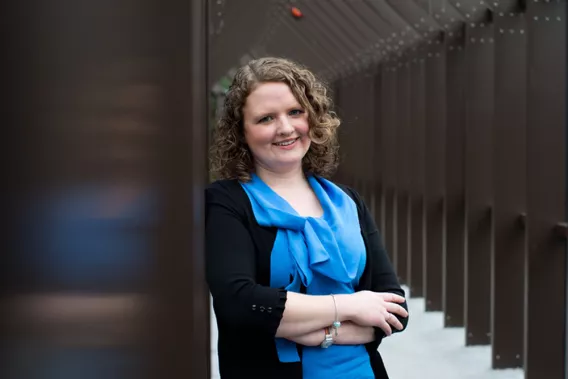
Dr Sinéad O’Keeffe, UL researcher is applying sensor technology to the treatment of cancer patients undergoing radiotherapy. Sinéad and her team at the Optical Fibre Sensors Research Centre, UL, are developing sensors which can be applied to critical organs to ensure they are not exposed to high levels of radiation. This technology will allow us to get up close to tumours to deliver treatment in a completely innovative way. A great example of Irish sensor research playing a part in the global battle against cancer.
Dr. O’Keeffe explains; “The sensors are smaller than current technology and so it can be placed at critical organs, e.g. lens of the eye, to ensure it is not exposed to high levels of radiation. Ensuring only the tumour, and not healthy tissue, is exposed to radiation will make the radiation treatment more effective. Many current technologies do not allow for real-time monitoring and so this technology will provide immediate information on the amount of radiation a patient has received and so improves patient safety.”
She was awarded a Marie Curie Research Fellowship to develop radiation dosimeters for monitoring patient doses received during radiotherapy for cancer treatment. The project, in collaboration with the University of California Los Angeles, Galway Clinic and Northern Ireland Cancer Centre, Belfast City Hospital, has made significant advances in the area of real-time patient monitoring during radiation treatment and a patent is currently being prepared in the area.
A graduate of the BEng in Electronic Engineering and Ph.D. at UL, Dr. O’Keeffe was recently awarded the Institute of Electrical and Electronics Engineers (IEEE) Sensors Council Early Career (GOLD) Award. The award was presented to Dr. O’Keeffe at the recent IEEE Sensors Conference in Taiwan.